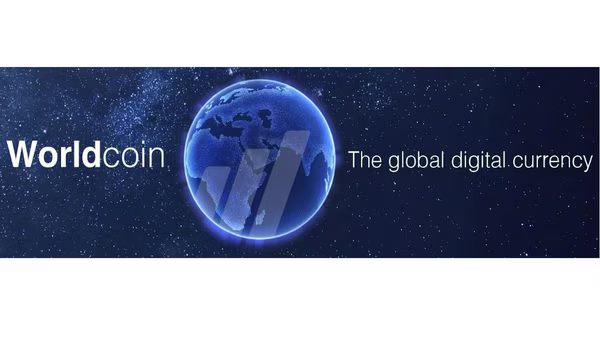
Leveraging Fintech to Provide Credit to COVID-19 Hit MSMEs
Traditional lending models by banks have failed to meet financing needs of small and medium enterprises
Across the globe, micro, small and medium enterprises (MSMEs) have been hit hard by the economic impact of COVID-19. The financial health of MSMEs is critical due to their significant contribution to the economy in terms of generating employment, output and exports. However, the ongoing pandemic has exacerbated challenges relating to formal financing options for them.
Even before the COVID-19 outbreak, traditional lending models adopted by banks have not been able to adequately meet the financing needs of MSMEs, thereby pushing them towards informal sources such as money lenders, friends, family, etc. This financing gap is likely to widen significantly following the pandemic, raising existential questions for MSMEs.
As India gradually reopens its economy, the new normal is likely to see a manifestation of contactless and remote business operations. This provides a unique opportunity to policymakers and businesses to leverage financial technologies (fintech) to adapt to the changed reality and respond to the challenges. Helping Covid-19-hit MSMEs through such fintech is one such opportunity.
Barriers to MSME lending
Many factors contribute to the challenges that MSMEs face while accessing credit from formal sources.
First, due to their informal nature,including the absence of formal documentation pertaining to financial information, there is often information asymmetry between MSMEs and banks.Consequently, assessing the creditworthiness of MSMEs is a challenge for banks. MSMEs typically range from kirana stores to large manufacturing units or enterprises in the service industry with an annual turnover of upto INR 250 crore. The informal nature is witnessed more in the case of micro and small enterprises.
Second, small businesses typically do not have adequate collateral necessary for securing a loan from a bank. This is likely to increase the risk perception of such businesses.
Third, due to the information asymmetry, absence of collateral and the reliance on outdated credit risk assessment methods, large commercial banks may often find that the operating cost to serve MSMEs is higher compared to the return on such MSME loans.
Fourth, the traditional credit appraisal system of banks results in high turnaround time for disbursing loans, estimated to be at an average of 26 days, which is too long for MSMEs that often require quick cash access.
Designing a Reform Agenda for leveraging fintech to meet the credit needs of MSMEs
As we prepare for a new social order marked by physical distancing and a digital first approach, there is a need to leverage fintech to design faster, more cost effective and transparent lending models.Below are some solutions for the same:
Cash-flow based lending model: Traditional asset based lending that relies on collateral for providing credit to MSMEs often fails to appreciate the MSME business model. Small businesses may rarely have collateral against which they can borrow – a situation which has perhaps become worse due to the pandemic. Therefore, there is merit in moving towards a cash-flow based lending model where credit is provided based on current and projected future cash flows.
Fintech innovations can enable a move towards such a form of lending. This may be facilitated by creating an online platform that leverages existing digital infrastructure such as Goods and Service TaxNetwork data, e-invoices, data from government e-marketplace and the account aggregator model to assess the cash flow.
Using alternative data to underwrite MSME loans: Traditional credit rating models consider a relatively limited set of data points that focus on collateral and past financial history of MSMEs. The economic shock caused by COVID-19 has weakened the value of such data. Such models may not be well equipped to predict the creditworthiness of many cash-strapped MSMEs. In this regard, reliance on alternative data (such as transactional data, behavioural data) through advanced big data analytics and artificial intelligence may be considered for underwriting MSME loans.
Such innovative and data driven solutions may be better placed to provide lenders with a more comprehensive picture of an enterprise’s ability to repay a loan. Such lending models are also better positioned to provide customised financing solutions to MSMEs. Taking into account such developments, there is a need to rethink the credit rating framework for MSMEs. Such a framework must be supported by strong data protection laws.
Creating a separate category of fintech credit service providers:Currently, there are different innovative digital lending models that have developed over time in India. This includes peer to peer lending (already regulated by RBI), bank/NBFC-fintech partnerships, captive models by platforms (where existing non-financial companies provide lending solutions to their already existing consumer base) etc. Technology companies typically partner with an existing financial institutions(banks or NBFCs) to provide technology support to develop digital lending models, including credit scoring / rating of prospective customers. Such technology companies do not provide loans on their books.
However, with a view to leverage and promote digital lending models and at the same time mitigate risks that may emanate from such models, RBI may consider creating a separate category of fintech credit service providers. The RBI should adopt a light touch based regulatory framework for such entities based on a co-regulatory model of governance. This framework should also include necessary safeguards to protect consumers from risks that may emanate from such lending models, including risks relating to transparency, fraud and cyber-attacks.
Creating a public-private digital solidarity partnership model: Many MSMEs are likely to struggle to invest in or adapt to new technologies that may mitigate the impact of the pandemic, such as technologies for remote working.
The government has recently launched a technology platform, CHAMPIONS, that, amongst other things, seeks to redress grievances of MSMEs and help them capture new opportunities of business. However, there is also a need to envisage a public private digital solidarity partnership model as undertaken in jurisdictions like Italy, Greece, Malaysia, etc to help MSMEs. For instance, in Malaysia, the Digital Economy Corporation is offering a list of digital solutions for MSMEs by Malaysian technology companies. In Greece, the government has launched a digital solidarity initiative – a platform where large technology companies provide free technology solutions, including online marketing and account management training for MSMEs. A similar platform may be envisaged for Indian MSMEs to avail digital solutions for their operations.
Leveraging regulatory sandbox models to design financing models:The regulatory sandbox models adopted by different financial regulators in India such as the RBI should also be leveraged to specifically design technology-based financing models (debt or equity) for MSMEs.
Views are personal.



